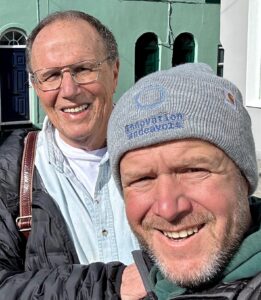George, my 14 year old poodle, accumulates a lot of pee at night, and so the first thing in the morning, I take him downstairs to allow him to get something off his mind.
And my car was not there.
Nor was that of my neighbour.
Gone.
I called the police 100. They told me to call another police station. We only have one police force is Israel, but apparently several numbers to report thefts. For a stolen car, press one; for an apartment break in, press two. For stolen phones, press three. Anyway….
I was told that I could report a theft which would be valid for my insurance claim via their website. Just a few problems: I had to open a user with gov.il using a long complex password which I fucked up a few times. Then I had to enter ‘POLICE’ and navigate to ‘thefts’. There were many types of thefts-and several times I was booted off the site for refreshing a frozen web page. Finally, I reached ‘car thefts’, yet since there had been no witness to the crime, I was not allowed to continue lodging the complaint. The help desk (which I reached after an hour) suggested that I try again in a few days ‘and hopefully that bug won’t be there’.
So in the blistering heat, I walked to the police station. Luckily, those before me in line were all complaining about car thefts; I was number 7 and I was out of there in an hour. Reporting a car theft in person takes but a few minutes.
Then, the insurance claim. The insurance company asked me for a copy of the car license. Of course it had been stolen. But they wanted it anyway-that is what their site told me. I called them, but there was no one to speak to; whatever I dialled, I was always sent to their site. So I tried to download a copy of the car license, at the Ministry of Transport-but the car was stolen so no notice of ownership could be issued. I called their help desk as well, and was referred to their website.
The wall between me and people with basic common sense and or a sense of ownership was blocked by a firewall of mindless software, which turned me, the user, into a miniscule meaningless speck of dust.
They all beat me.
And just to make sure I was dead, I got a text from the insurance company telling me that ‘your complementary car is available on Friday, not Wednesday, due to temporary unavailability.’ The complementary car can be picked up at a one hour drive from my home, “at your convenience”.
I did not even try to change that, although there are rental services near my home.
I know when I am beat.
Thanks heavens for my insurance agent, a real person, who called me and told me that he, not I, will take on the beast and get me reimbursed.
Digital-based services will eventually be seen as a crime against humanity.
PS. Cancelling Road 6 subscription was done easily by web. Cancelling Road 6 North was a nightmare; they wanted the last 4 digits of my credit card, and I was driving so I could not access it. Then, it took me another two days to get a reply that I sent them to their web site.Cancelling Carmel Mountain Tunnel subscription is a work in progress. There is no answer to the cancelling request that I submitted.
And my car was spotted in a security camera entering the Palestian Town of Qalqiya-and by now is long gone, chopped up into spare parts and resold both in Israel and in the PA. (Palestinian Authority)


